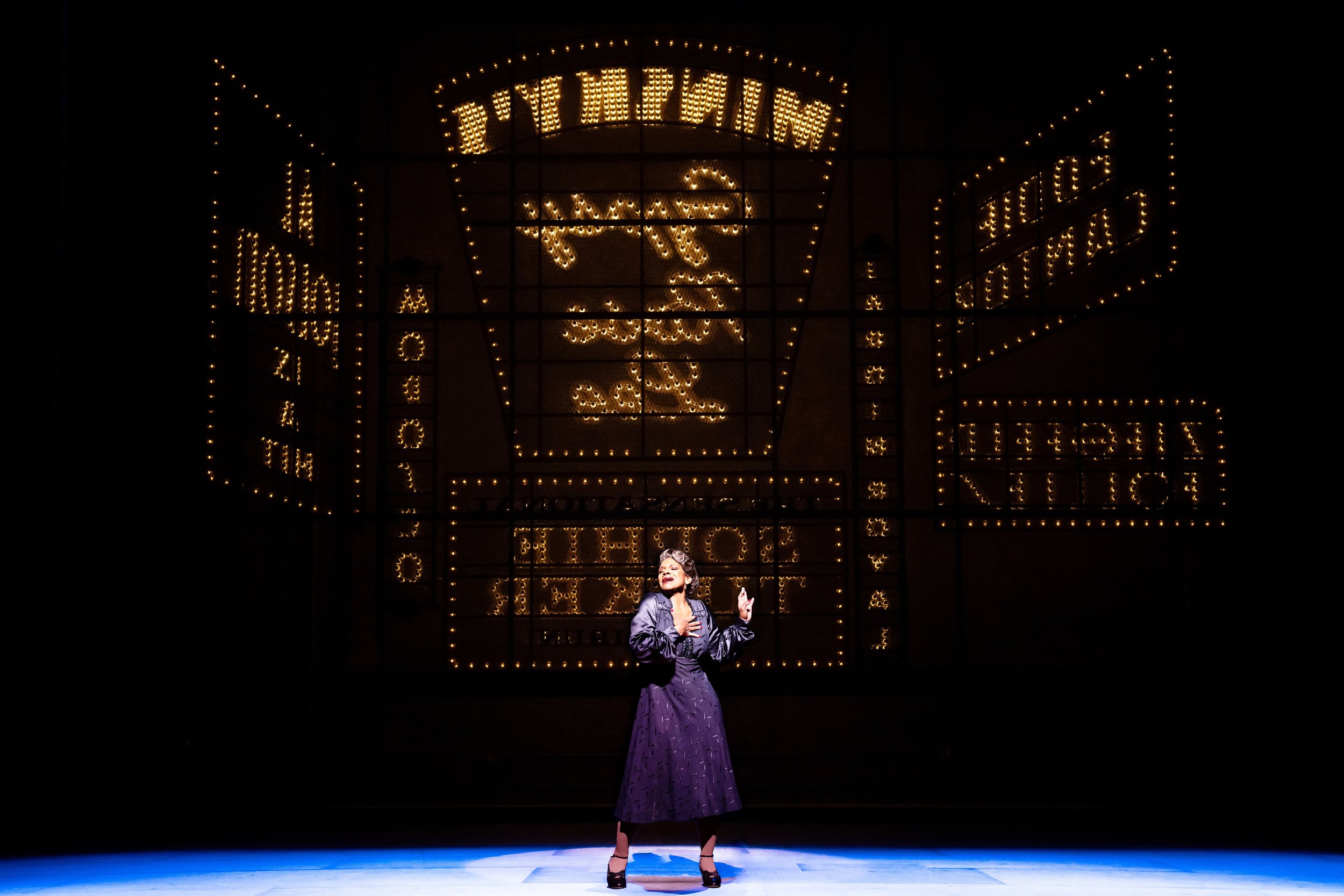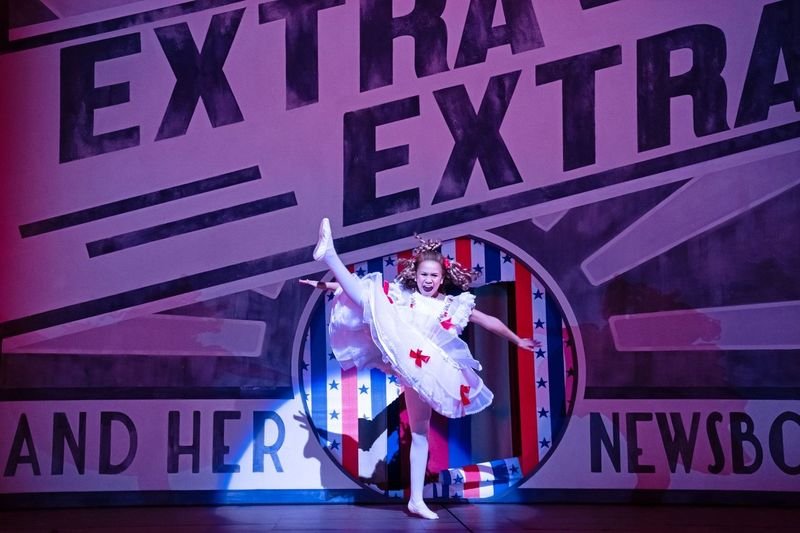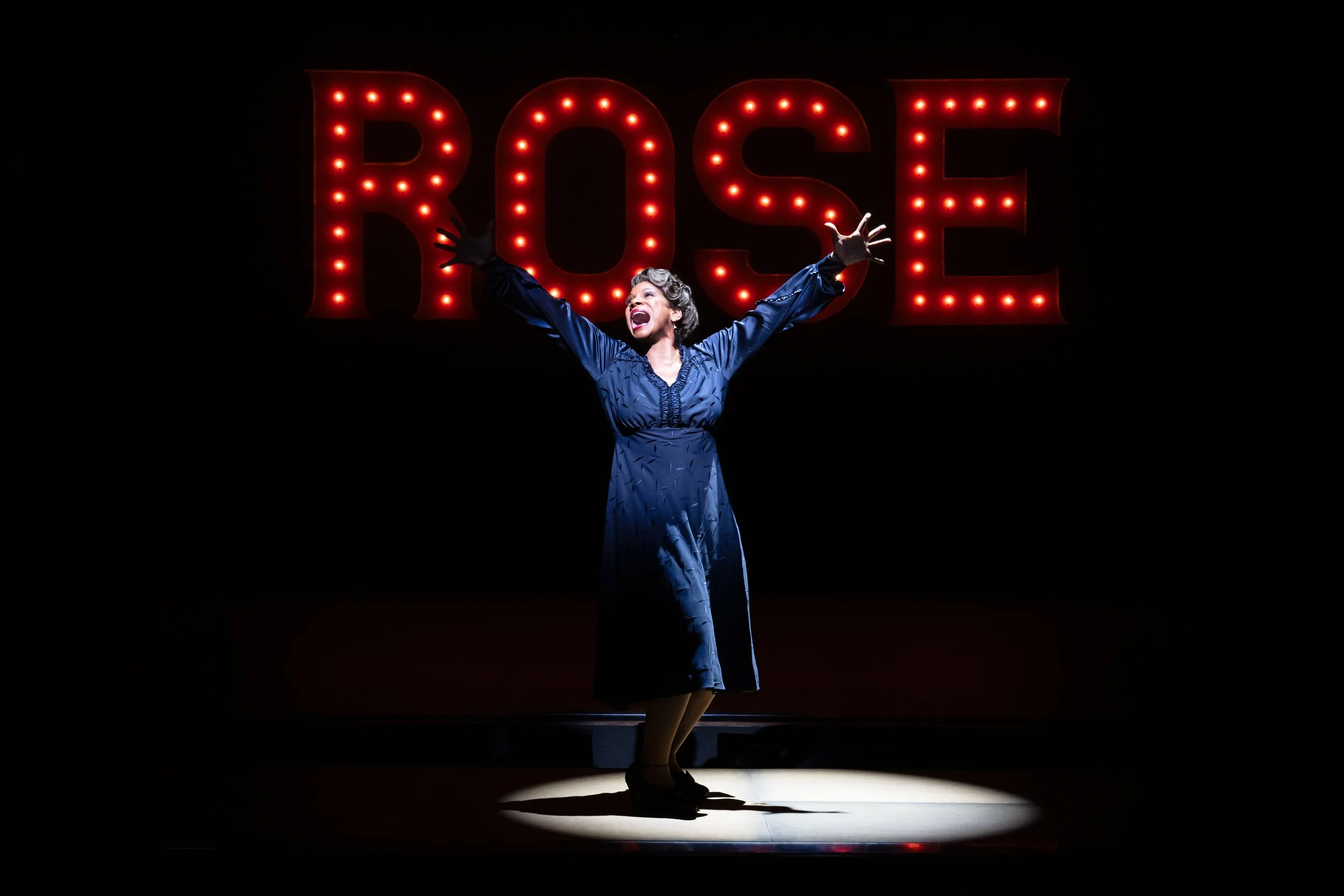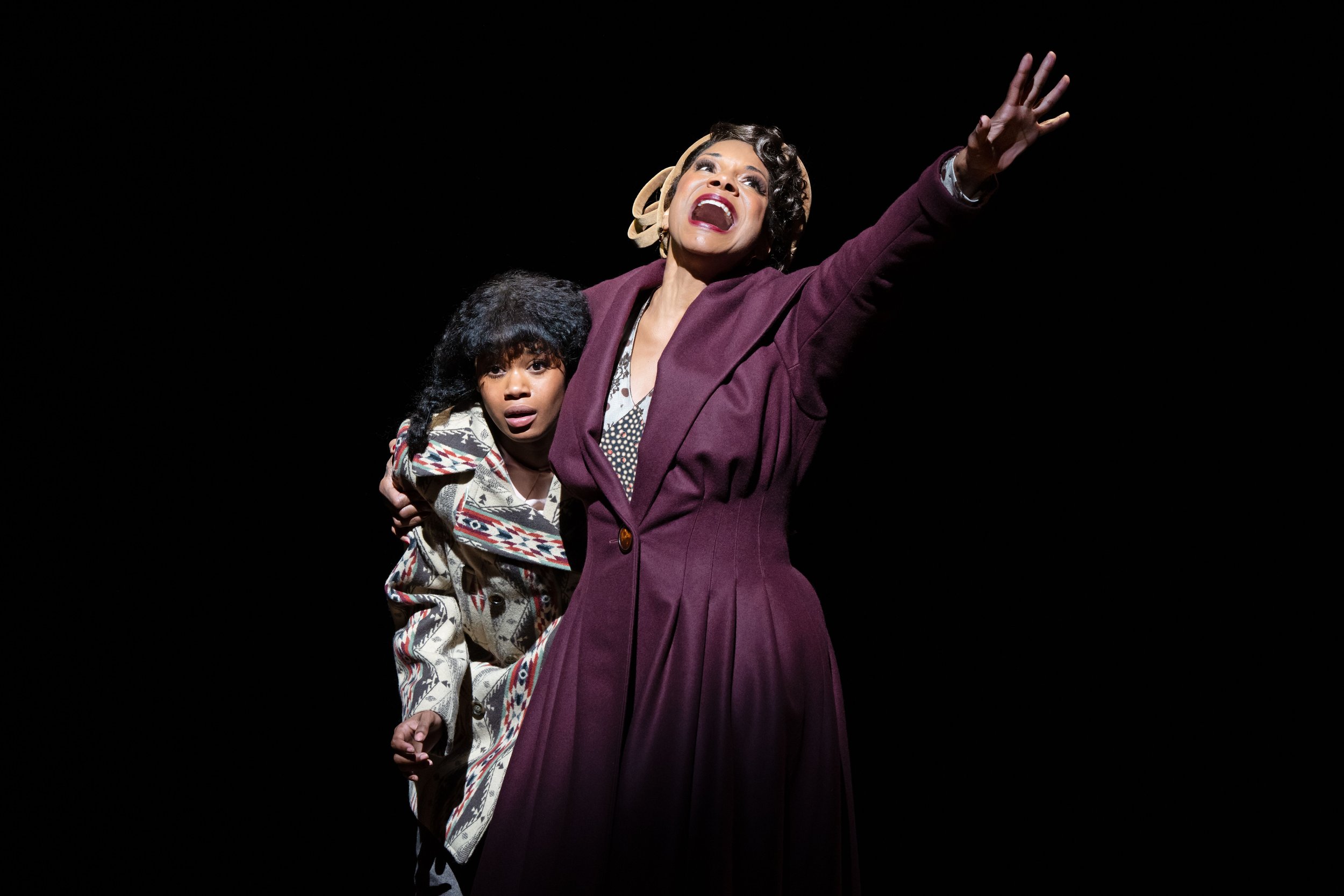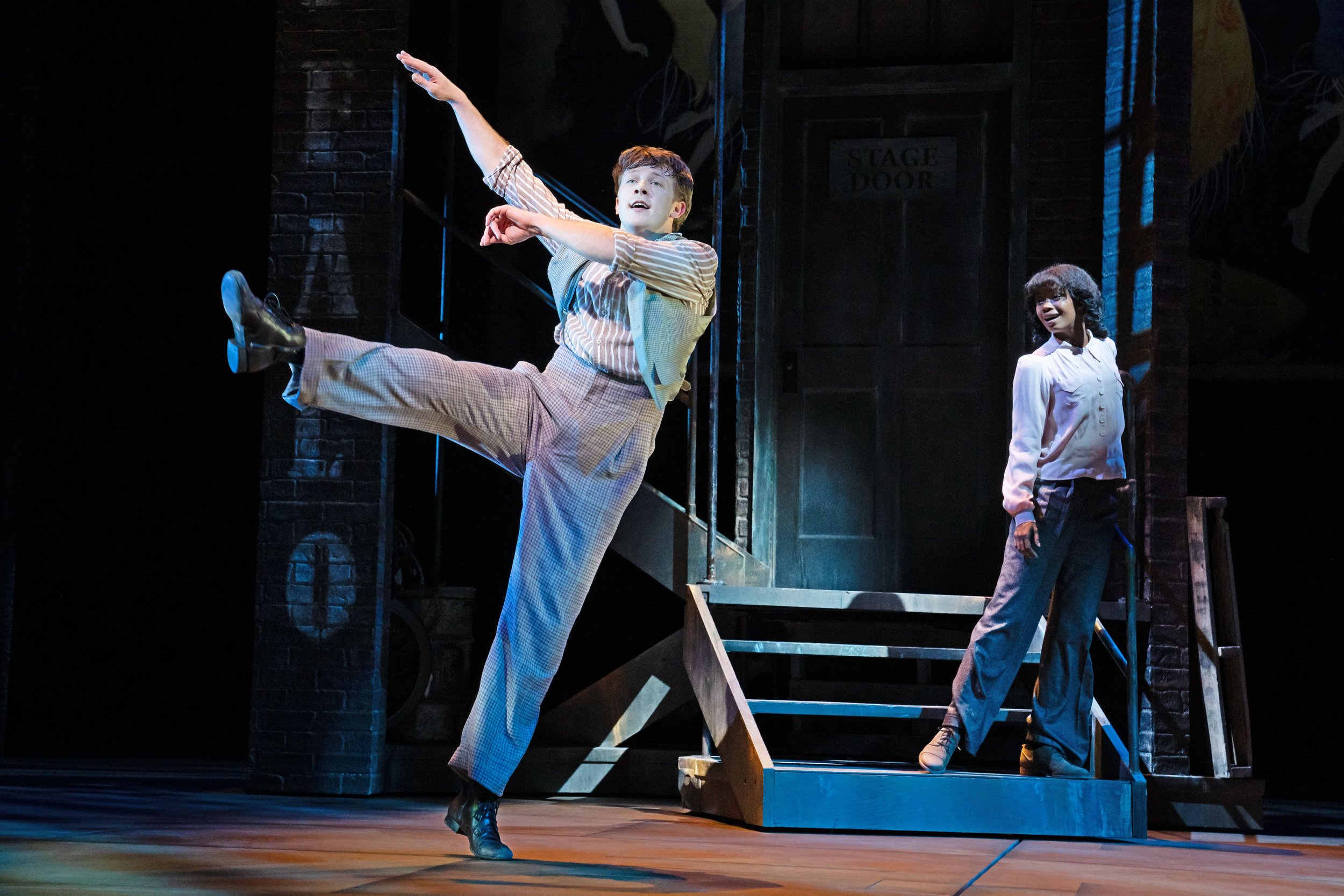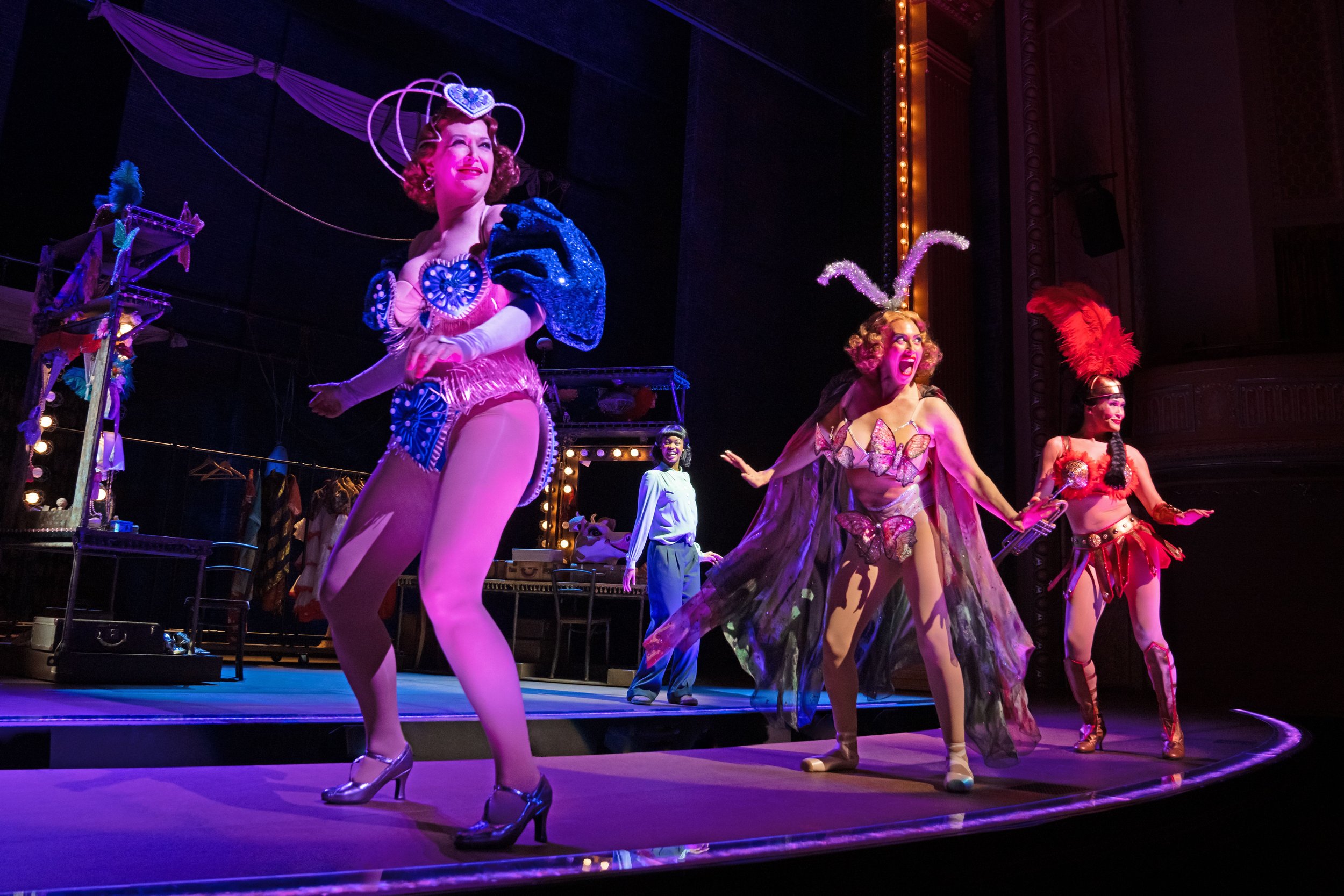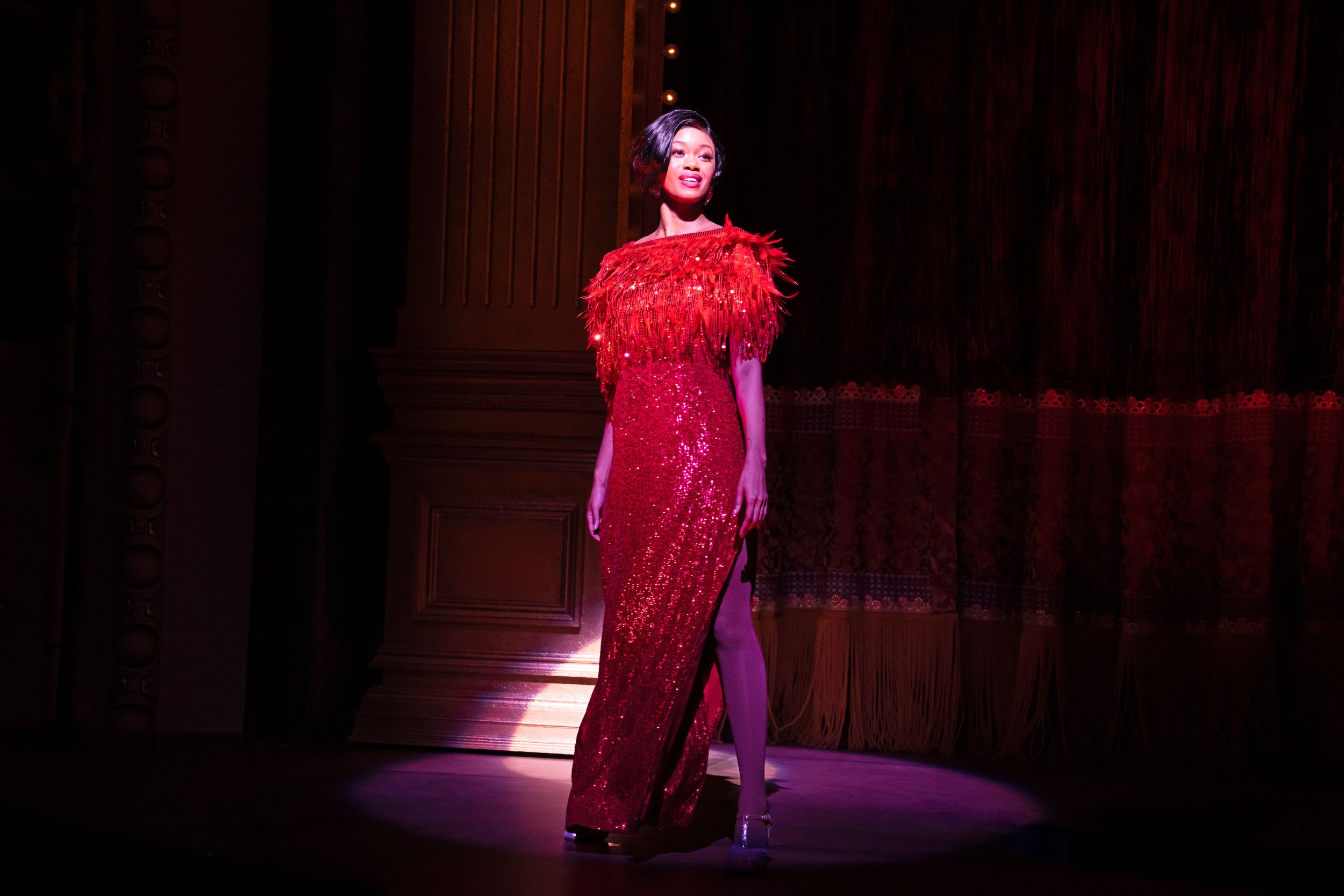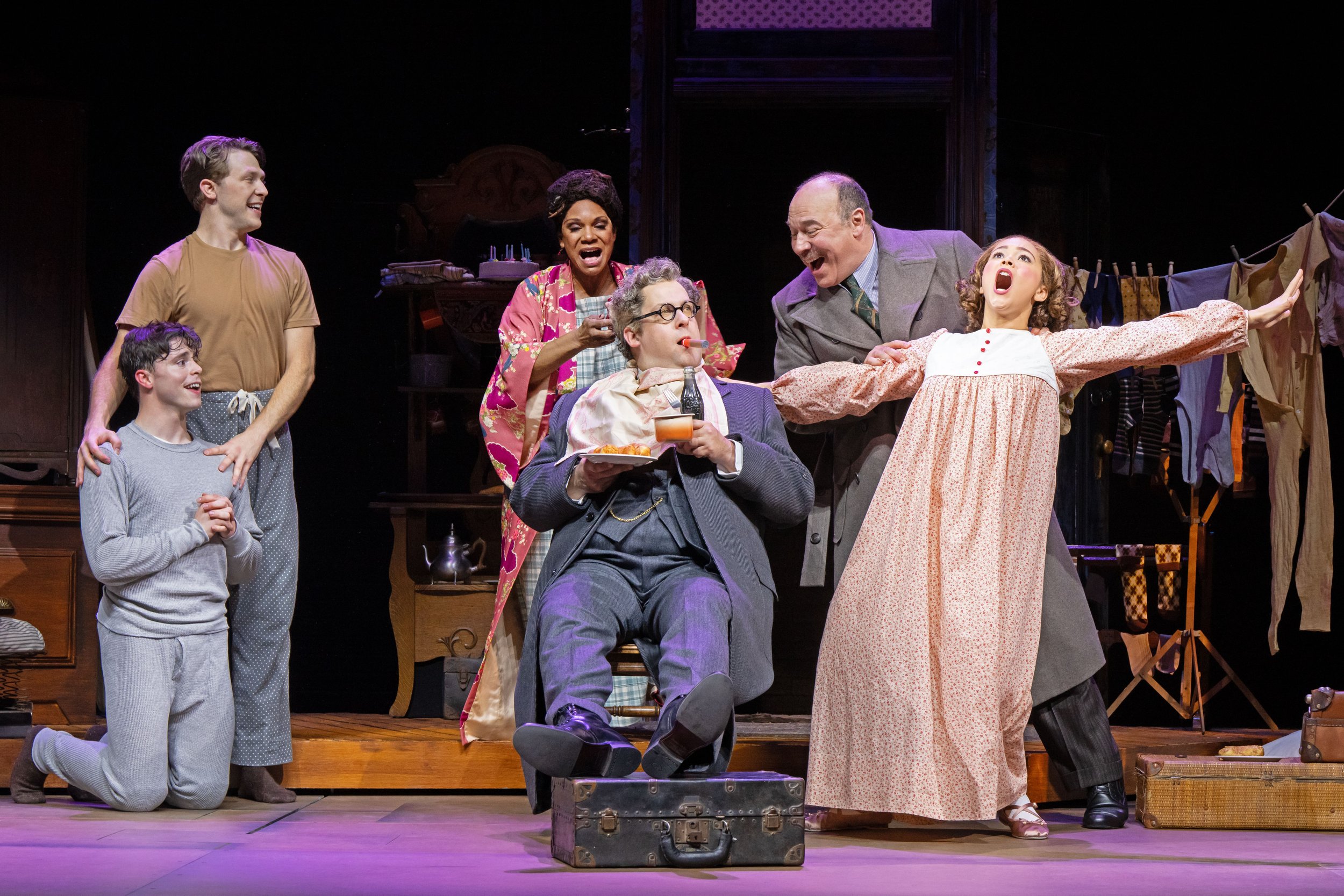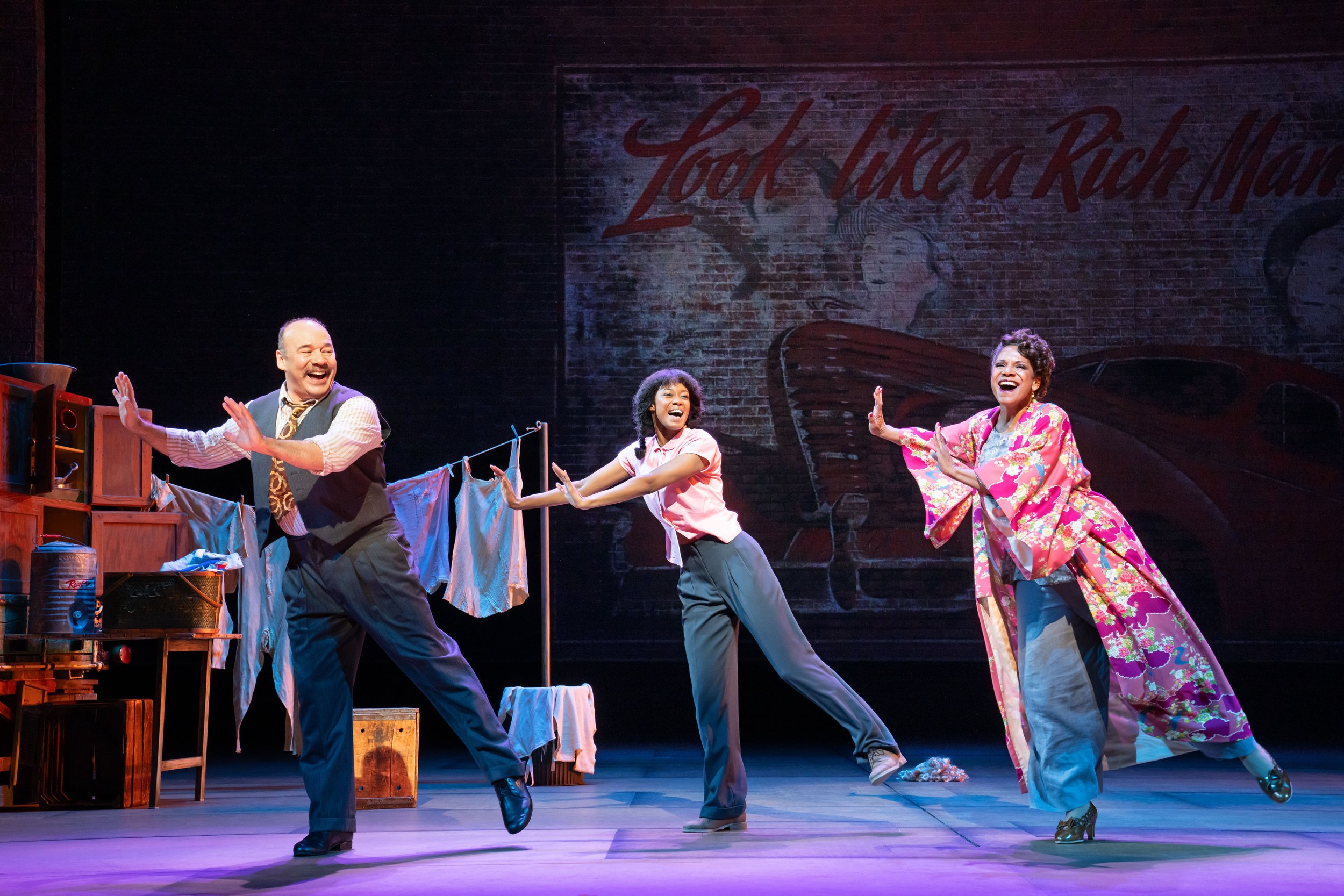My Take: Broadway's "Gypsy" Starring Audra McDonald
Photos by Joan Marcus
The show: The Broadway revival of the musical “Gypsy.”
What makes it special: Audra McDonald tackles the role which many consider the greatest musical theater role for an actress. She joins a formidable list of musical icons in the part: Ethel Merman who originated the role in 1959; then Angela Lansbury in the mid- ‘70s (which I saw); then Tyne Daly in the ‘late 80 (ditto); Bette Midler was in the television version in 1993; Bernadette Peters in 2004 and Patti LuPone in 2008. (Barbra Streisand never got to star in the film version she envisioned.) In Connecticut I saw Leslie Uggams tackle the role; also Karen Ziemba.
This revival has some additional aspects that makes it special indeed.
Such as?: Two words: Audra McDonald. Well, maybe seven: Six time Tony Award winner Audra McDonald. It’s also the first show at the beautiful Majestic Theater since the close of the decades-long running “The Phantom of the Opera.” Also: The choreography is not that of the original dance master, Jerome Robbins (who also directed the original) so that’s quite a daring endeavor. Also: The show is staged by one of our great directors, George C. Wolfe, who here brings a different perspective to the work.
Like…?: Casting an African-American in the role of Rose is not unique — Uggams had performed the role years earlier, the first African American actress to take on the iconic role in an Equity production. (She was 71 in 2014 for the Connecticut Repertory Theatre production. (The musical’s writer Arthur Laurents reportedly was keen on Uggams doing the role 10 years earlier but that casting never materialized.)
But Wo;fe also casts Rose’s two daughters June and Louise (the latter who became Gypsy Rose Lee, the iconic stripper of her era) as black as well. Wolfe’s telling the story through a different lens is effective — up to a point. Having the lighter-skinned June as the daughter groomed to be a star by her driven mother has subliminal meaning. Also when the act “upgrades” to the vaudeville circuit by changing June’s back-up boy chorus from black to white, we know exactly what— and why it — is taking place without changing a word of text. (The moment is effectively choreographed by Camille A. Brown, eschewing Robbins’ flickering transition staging and adding the presence of Rose making the replacements in the scene herself.)
But being asked to consider racial significance in most of the show, we are also asked to forget it in other scenes. (There’s little racism seen in restaurants, an audition, or the burlesque backstage life.) Still, I’ll buy the inconsistency — the original script certainly takes liberties with the real-life story anyway —because it works well when it does, even if Wolfe drops the ball in the end.
Bottom line: I loved a lot of the show but have reservations about the production Plenty of pluses and minuses.
Let’s get the minuses out of the way: Wolfe fails to maximize the shows humor. Even though many of the lines as written by Arthur Laurents are almost foolproof, Wolfe often directs his cast to get smiles when they should get major laughs.
When Rose presents June’s act to a major producer, his secretary mocks the cheap scenery. But it ‘s not cheesy; it looks pretty spiffy to me. Santo Loquasto’s sets for the production on the other hand are neither here nor there — not imaginative enough to be dazzling; not spare enough to be dramatically effective. And after praising Brown’s choreography above, she misses in the “All I Need Is the Girl” number. She makes it all about the talents of chorus boy Tulsa (a wonderful Kevon Csolak) but our eyes and hearts should go not to him but to the painfully longing Louise.
Joy Wood’s Louise is solid in her pre-strip numbers. Her “Little Lamb” song is touching and “Together” is joyous, as it should be. But her climactic strip number is not thought out and fizzles when it should build and soar. Also strippers wearing nude body stockings?! In a 2025 production?! Really? How prudish.
I hope there’s a ‘But….’ coming: You bet. Jordan Tyson is excellent as the older version of June. It’s a part that’s obviously not a showcase and with relatively little stage time. But she’s terrific in “If Mama Was Married” number with Wood’s older Louise matching her note for note and emotion for emotion. But it’s June’s big scene and Tyson acts the hell out of it, making it both heartbreaking and funny.
As Herbie, the act’s ad hoc agent and Rose devotee, Danny Burstein brings warmth, sincerity and incredible mensch-ness (as opposed to simple weakness) to the role. He’s the best Herbie I’ve seen. It’s not easy to go from saying “Nice to meet you” to Rose and then five minutes and a one charming song later be falling in love and changing your life for her. But Burstein makes you completely buy into it — as well as understanding why he stays (“You’ll Never Get Away From Me”). His good heart makes his explosive final scenes doubly effective and Burstein is shattering in this scene.
Then there are the old-pro burlesque strippers. Terrific as (almost) always, especially Lesli Margherita as Tessie Tura, but also Sally Shaw as Mazeppa, the strumpet who plays the trumpet for real, and Melinda Hull as Electra who is electrifying without even trying.
Ands then there’s Rose: Simply put, McDonald is magnificent. Her honeyed soprano and radiant charisma bring a special warmth and naturalness to the role, especially where her daughters are concerned. Yes, this single mother is fiercely determined to have her family not only survive during desperate times but triumph. But she’s also loving, playful, and sexy, too. McDonald doesn’t play Rose as crazed but as single-minded, resourceful and ever-resilient It’s only at the end of Act One that she steps onto the ledge and at the end of Act Two that she almost steps off it. Yes, she is delusional — but not always and not madly so; sometimes she is quite self-aware but ever forward moving. And of course, there’s that voice and to hear her sing one of the best scores in musical theater is pure bliss.
Who will like the show?: Audra fans. Sondheim/Styne/Laurents fans. Those who appreciate different takes on classic shows.
Who won’t?: ‘Gypsy’ purists.
For the kids:?: Smart kids and adolescents will relate to a controlling parent — and kids’ need to break free.
Thoughts on leaving the parking lot: Is there a better overture than the one in “Gypsy?” orchestrated and arranged by Sid Ramin and Robert Ginzler. (If there is, it’s another Jule Styne show: “Funny Girl.”) I still get chills listening to these first notes of “Gypsy” — and that wailing trumpet!
Every time I see the show, I discover new appreciation of the score and especially Sondheim’s lyrics, revealing character details in just a few words (The final lyric: “I wonder how old I am,” at the end of “Little Lamb” says it all — and just wrecks me.)


